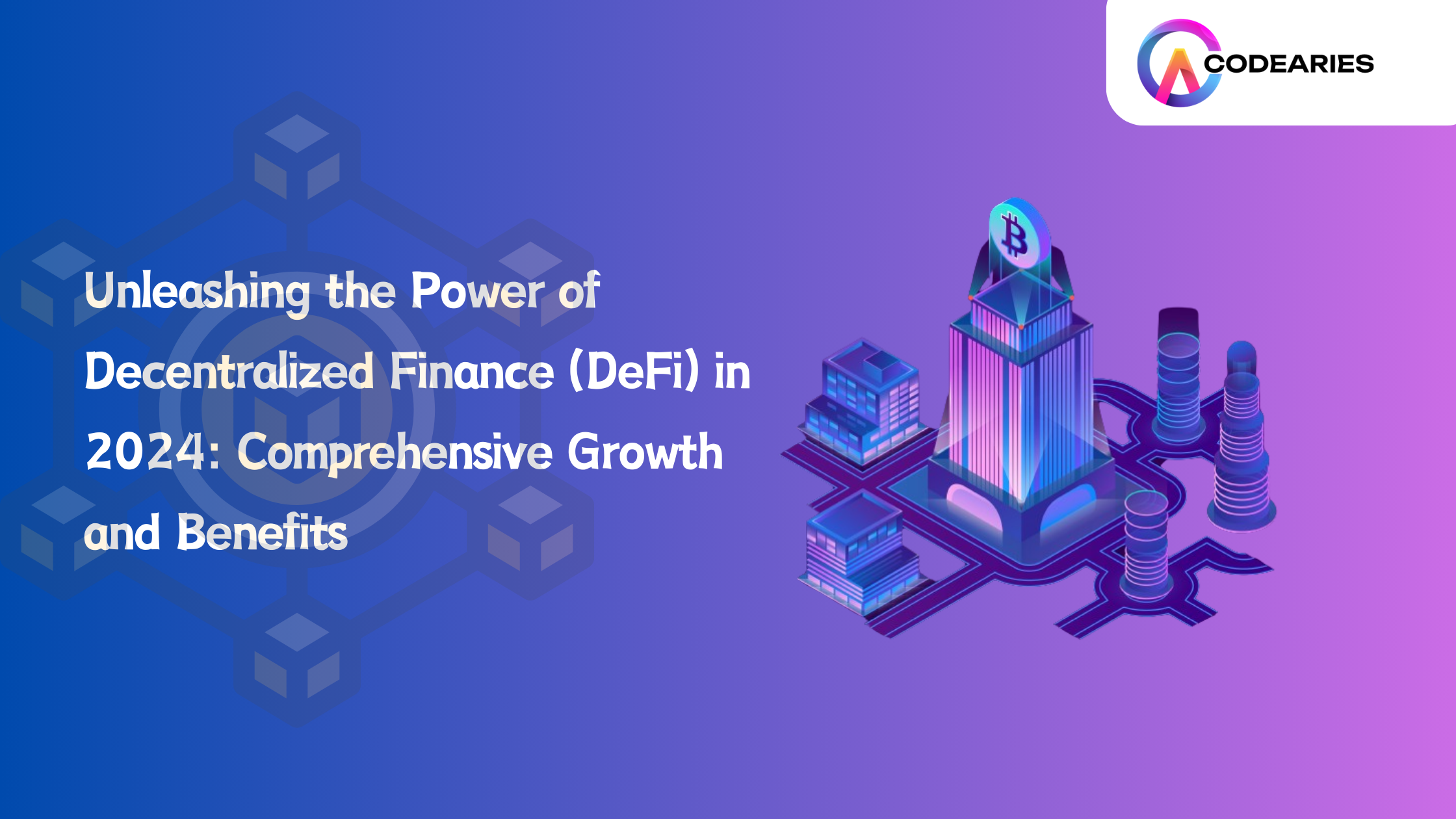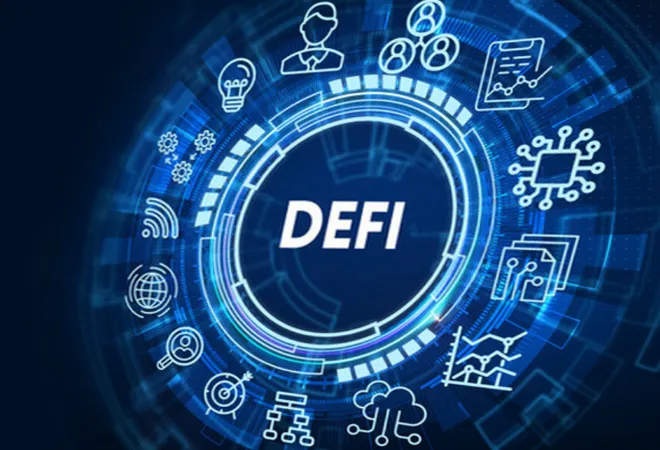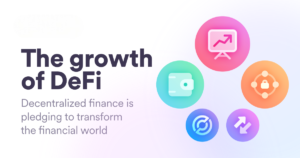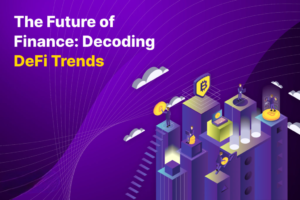
Unleashing the Power of Decentralized Finance (DeFi) in 2024: Comprehensive Growth and Benefits

Introduction
In the rapidly evolving landscape of financial technology, Decentralized Finance (DeFi) stands out as a revolutionary force reshaping how we interact with money. Leveraging the power of blockchain technology, DeFi bypasses traditional financial institutions, offering new, decentralized financial services that are more inclusive, transparent, and efficient. As we step into 2024, the growth of DeFi is accelerating at an unprecedented pace, bringing transformative benefits to users worldwide. This blog delves into the evolution of DeFi, exploring its growth across various industries and highlighting why it is crucial for everyone to embrace this groundbreaking technology.
The Evolution of DeFi in 2024
1.Understanding DeFi and Its Core Principles

Decentralized Financial Services:
At its core, DeFi leverages blockchain technology to create an open, permissionless financial system. Unlike traditional financial services that rely on centralized entities like banks and brokerages, DeFi operates on decentralized networks, allowing users to engage in financial activities without intermediaries. This shift not only reduces costs but also enhances transparency and security.
Smart Contracts:
Smart contracts are self-executing contracts with the terms of the agreement directly written into code. They play a pivotal role in DeFi, automating complex financial transactions and ensuring that they are executed accurately without the need for human intervention. This automation reduces the risk of errors and fraud, making DeFi a more reliable alternative to traditional financial systems.
2.The Rapid Growth of DeFi

Market Expansion: The DeFi market has experienced exponential growth over the past few years. By 2024, the total value locked (TVL) in DeFi protocols is expected to surpass $200 billion, reflecting the increasing trust and adoption of decentralized financial services. This growth is driven by the expanding ecosystem of DeFi applications, including lending platforms, decentralized exchanges, and yield farming protocols.
User Adoption: More individuals and businesses are turning to DeFi for its superior financial services. The user-friendly interfaces of DeFi platforms and the promise of higher returns on investments have attracted a diverse user base, from retail investors to institutional players. For instance, the number of unique DeFi wallet addresses surpassed 4 million in early 2023, showcasing the growing interest in DeFi solutions.
3.Key Benefits of DeFi

Financial Inclusion: One of the most significant advantages of DeFi is its potential to promote financial inclusion. Traditional banking services are often inaccessible to people in developing regions due to high costs and stringent requirements. DeFi eliminates these barriers, providing anyone with an internet connection access to financial services like savings, loans, and insurance. Reports indicate that over 1.7 billion people globally remain unbanked, and DeFi has the potential to offer financial services to a substantial portion of this population.
Transparency and Security: DeFi platforms are built on blockchain technology, which ensures that all transactions are recorded on a transparent and immutable ledger. This transparency reduces the risk of fraud and corruption, fostering a more secure financial environment. Additionally, the decentralized nature of DeFi platforms means that there is no single point of failure, further enhancing security. For example, in 2022, DeFi platforms accounted for over 75% of all blockchain-based financial activity, underlining their growing importance in the financial ecosystem.
Cost Efficiency: By removing intermediaries, DeFi significantly reduces transaction costs. Traditional financial institutions often charge high fees for their services, but DeFi platforms operate with minimal overhead, passing the savings on to users. This cost efficiency is particularly beneficial for small businesses and individuals who are looking to maximize their financial returns. In fact, some DeFi lending platforms offer interest rates that are 10 times higher than traditional banks.
4.DeFi Innovations and Future Trends

Interoperability: One of the emerging trends in DeFi is the push for greater interoperability between different blockchain networks. Projects are increasingly focusing on creating bridges that allow assets and data to move seamlessly across various platforms. This interoperability enhances the overall functionality and user experience of DeFi applications.
AI Integration: The integration of artificial intelligence (AI) with DeFi is another exciting development. AI-driven algorithms can analyze vast amounts of data to provide real-time insights, optimize investment strategies, and enhance risk management. This integration is expected to make DeFi platforms even more efficient and user-friendly.
Regulatory Developments: As DeFi continues to grow, regulatory scrutiny is inevitable. Governments and regulatory bodies are working to create frameworks that ensure the safety and legality of DeFi operations without stifling innovation. These regulations are likely to focus on areas such as anti-money laundering (AML) and know-your-customer (KYC) requirements.
5.Challenges and Opportunities
Regulatory Challenges: While regulations are essential for the sustainability of DeFi, they also pose challenges. Striking a balance between ensuring compliance and maintaining the decentralized nature of DeFi is a delicate task. However, proactive engagement between regulators and DeFi developers can help create a conducive environment for growth.
Security Concerns: Despite its inherent security advantages, DeFi is not immune to risks. Smart contract vulnerabilities and cyber-attacks remain significant concerns. Continuous development and rigorous security audits are crucial to mitigating these risks and ensuring the long-term stability of DeFi platforms.
6.The Role of CodeAries in DeFi Development
Building and Scaling DeFi Platforms: CodeAries specializes in developing robust and scalable DeFi platforms tailored to the unique needs of businesses and individuals. Our team of experts leverages the latest blockchain technologies to create secure and efficient DeFi solutions that drive financial innovation.
Expert Support and Consultation:
At CodeAries, we understand that navigating the DeFi landscape can be challenging. Our comprehensive support services include consultation, development, and maintenance, ensuring that your DeFi platform operates smoothly and effectively. Whether you are looking to build a new DeFi application or enhance an existing one, CodeAries is your trusted partner.
Contact Us: Ready to explore the possibilities of DeFi? Contact us at [contact@codearies.com] or drop a message on WhatsApp at +91 8826636700 for more information.
Conclusion
The evolution of Decentralized Finance (DeFi) in 2024 marks a significant milestone in the financial industry. By leveraging blockchain technology, DeFi is creating a more inclusive, transparent, and efficient financial system that benefits everyone. As DeFi continues to grow, embracing this technology is crucial for staying ahead in the rapidly changing financial landscape. With the support of experts like CodeAries, building and scaling a successful DeFi platform has never been easier.
Frequently Asked Questions
DeFi, short for Decentralized Finance, refers to financial services that operate on blockchain technology, bypassing traditional intermediaries like banks.
How does DeFi promote financial inclusion?
DeFi provides access to financial services for anyone with an internet connection, removing the barriers associated with traditional banking.
What are the benefits of using DeFi platforms?
DeFi platforms offer benefits such as lower transaction costs, increased transparency, enhanced security, and greater financial inclusion.
How is AI being integrated into DeFi?
AI-driven algorithms are used in DeFi to analyze data, optimize investment strategies, and enhance risk management, making platforms more efficient and user-friendly.
What are the regulatory challenges facing DeFi?
DeFi faces regulatory challenges related to ensuring compliance with anti-money laundering (AML) and know-your-customer (KYC) requirements while maintaining decentralization.
What role does interoperability play in DeFi?
Interoperability allows assets and data to move seamlessly across different blockchain networks, enhancing the functionality and user experience of DeFi applications.
How can CodeAries help in developing DeFi platforms?
CodeAries offers expert development, support, and consultation services to build and scale secure and efficient DeFi platforms tailored to the needs of businesses and individuals.


